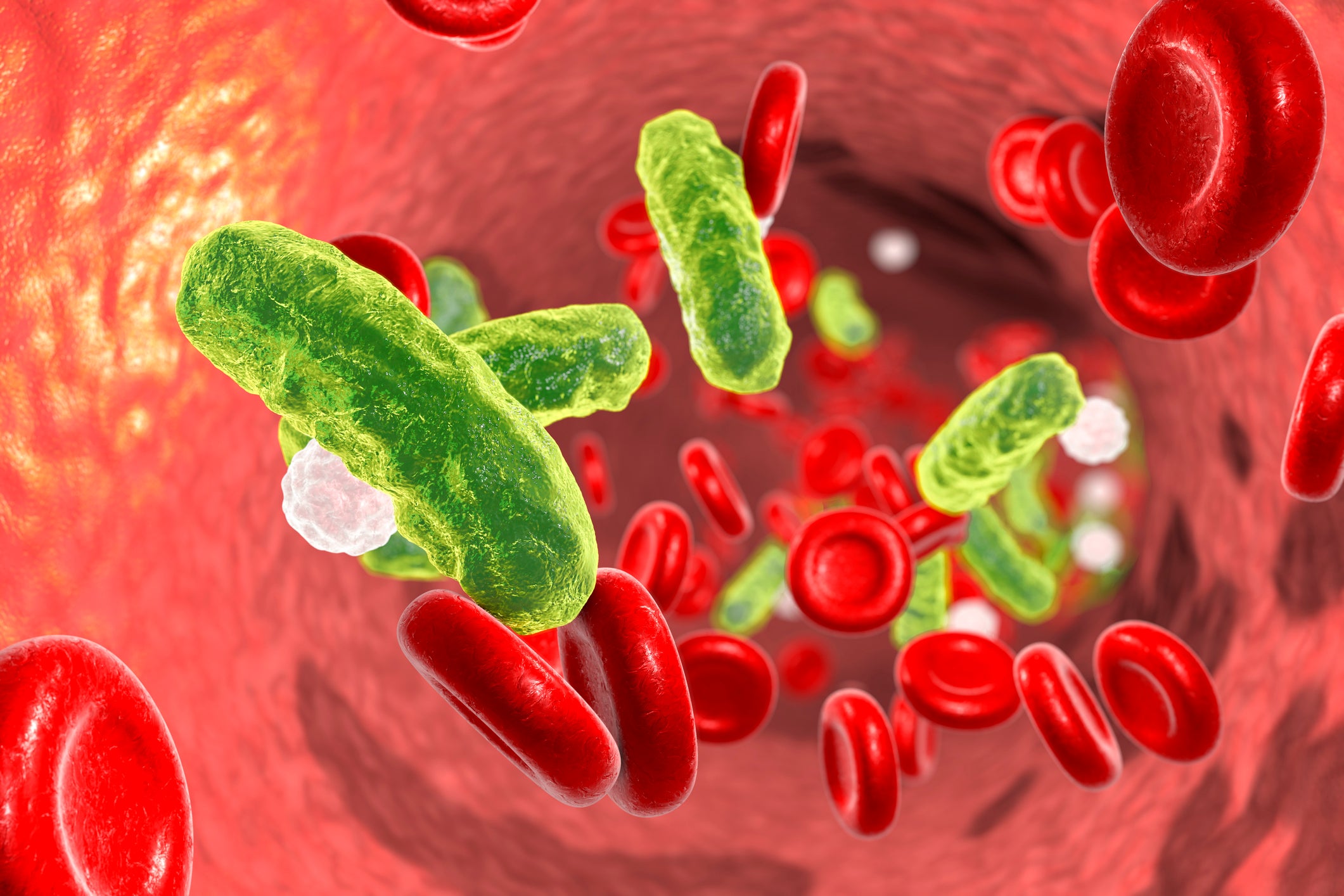The NHS is currently trialling a rapid blood test designed to diagnose life-threatening conditions such as sepsis and meningitis in children.
The 15-minute MeMed BV blood test can swiftly distinguish between bacterial and viral infections.
This innovation bypasses lengthy lab analysis, rapidly indicating bacterial infection and enabling immediate antibiotic treatment. Experts believe this advancement could save lives and lead to more appropriate care for those not needing antibiotics.
Doctors taking part in the trial say they have already seen the benefits.
In one case, a child with meningococcal meningitis was treated much more quickly and another with sepsis started antibiotics straight away.
NHS England has funded a trial of the technology in three emergency departments: Alder Hey Children’s Hospital in Liverpool, St Mary’s Hospital in London, and Great North Children’s Hospital in Newcastle.

Enitan Carrol, professor of paediatric infection at the University of Liverpool, who is leading the project, said: “Many of the children who come to hospital have a fever and this test can quickly distinguish between a minor viral illness like a cold, or a more serious infection.
“Our study is investigating whether this definitive test for a bacterial or viral infection will be useful in helping doctors make faster decisions and reducing the use of unnecessary antibiotics – all of which is better for patients and the NHS.”
Dr Charlotte Durand, consultant in paediatric emergency medicine at Alder Hey, said the test “could have a massive impact on the emergency care of paediatric patients”.
Dr Ron Daniels, founder and chief medical officer of the UK Sepsis Trust, said the test could save lives.
He said: “A recent national publication suggested that, among the deaths of approximately 500 children each year where infection was present, care was suboptimal in 40% of cases.
“Making the right decision around early antimicrobial prescribing in children who need antibiotics the most has potential to save dozens of young lives every year.”

He said severe infections and sepsis are “one of the greatest acute illness burdens facing our NHS”, while resistance to antibiotics, which is largely caused by overprescribing, also affects thousands of patients.
He added: “Using antibiotics more wisely – meaning both withholding them in people who won’t benefit and giving them urgently to people who need the most – has never been more important.
“This new (NHS) research, examining the real-world performance of one of a wide range of potentially important new tests, aims to distinguish between people with bacterial infection who may well require and benefit from antibiotics and people with viral infection, who will not benefit.
“Although the study is in children, previous studies have shown its performance to be even better in adults, meaning there is potential opportunity across all ages.
“However, a challenge the NHS has is understanding how to properly integrate these tests into clinical systems – and how to support clinicians making prescribing decisions based upon the results.
“There is an urgent need to change the way we bring novel and rapid diagnostics such as this into the NHS.”
Symptoms of sepsis
NHS
Call 999 or go to A&E if a baby or young child has any of these symptoms of sepsis:
- blue, grey, pale or blotchy skin, lips or tongue – on brown or black skin, this may be easier to see on the palms of the hands or soles of the feet
- a rash that does not fade when you roll a glass over it, the same as meningitis
- difficulty breathing (you may notice grunting noises or their stomach sucking under their ribcage), breathlessness or breathing very fast
- a weak, high-pitched cry that's not like their normal cry
- not responding like they normally do, or not interested in feeding or normal activities
- being sleepier than normal or difficult to wake
Professor Simon Kenny, national clinical director for children and young people at NHS England, said: “Innovations like the 15-minute blood test speed up diagnosis and allow focused treatment, as well as freeing up resources to treat more patients, so it’s great we’re able to trial the test this winter when the NHS is at its busiest.”
Dr Emma Lim, consultant paediatrician at the Great North Children’s Hospital in Newcastle, said: “Every year, thousands of worried parents bring their children with fever to hospital.
“Often, it turns out to be nothing serious — but it’s hard to know in the moment.
“A quick and reliable test like this can help doctors make faster decisions, and reduce the need for unnecessary antibiotics, which is better for patients, parents and the NHS.”
The study looking at the MeMed BV test will run until March.
NHS needs extra £3bn, health bosses warn ahead of Rachel Reeves’ Budget
Labour fears NHS ‘won’t survive’ another SNP term
Symptoms and advice as tuberculosis cases surge in the UK
Private hospitals carrying out more NHS appointments and procedures
Full-fat milk vs low-fat milk: Study shows which is healthier for your heart
The size of this body part can reveal the hidden truth about your heart’s health







